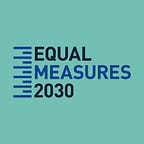The power of community-generated data to drive progress on gender equality
Over the past few years, Kenya has seen great progress in enacting legislation on issues to advance gender equality and women’s empowerment [1]. For example, the country has achieved gender parity in primary education enrolment, due to the 2003 government policy on access to free primary education, and is approaching parity in secondary education [2]. However, despite the country’s progressive policy frameworks to improve gender equality and equity, girls and women still face discrimination across the economic, social, cultural and political spheres.
In 2015, 193 countries, including Kenya, agreed to achieve 17 Sustainable Development Goals (SDGs) that aim to, among others, eradicate hunger and diseases and reduce inequalities and environmental strain by 2030 [3]. The framework laid out by the SDGs is extensive and measuring and tracking progress on the various issues can be challenging, especially in countries where data are limited.
Engaging civil society is a critical component to ensuring that progress is being made across the SDGs and that no one is left behind. This is why Equal Measures 2030’s (EM2030) national partner GROOTS Kenya — a national movement of grassroots women-led community-based groups and self help groups — collect and analyse community data on issues pertaining to the SDGs. With their original research, GROOTS Kenya advocate for women’s rights and use data to hold their government accountable for implementing policies and frameworks that are inclusive of everyone on issues ranging from land rights to health.
“For a long time women have been discriminated in [among others] land ownership […] so I wanted to see that as a country we actually achieve equality in access to land for women and men,” says Fridah Githuku, Executive Director of GROOTS Kenya.
Data drives accountability and change
To date, GROOTS Kenya and their members have collected data in four counties across Kenya. Prior to this effort, GROOTS Kenya held a three-day workshop for women in Nakuru, north of Nairobi, to discuss what the SDGs entail, how women’s unique issues are linked to the different SDGs and how collecting data on such issues can drive change. The grassroots women were also trained in collecting data with questionnaires.
In order to successfully and efficiently collect data, GROOTS Kenya trained grassroots women in the use of Open Data Kit software for mobile phones. With this easy-to-use mobile tool, the data from the grassroots women’s household questionnaire are directly transferred to a central database.
Through the use of their community-generated data and evidence, the grassroots women champions have been able to engage policymakers and local authorities and have collectively influenced county budgets (alongside other key stakeholders). Recently, for example, the county government in Kitui county set aside 800 Ksh. Millions (about $7.9 Million USD) to clean energy as part of their County Integrated Development Plan (CIDP 2018–2022). As a strong advocate for clean energy in the county, GROOTS Kenya was very proud of the government’s commitment to increasing access to electricity, connectivity and alternative forms of household energy in rural areas.
Using community-generated data to complement national statistics
Data from the Kenya Bureau of Statistics are an important source of data about progress towards the SDGs, but on some issues, official statistics still do not capture the full picture. Important gender issues, such as unpaid care work and how that is shared between men and women and girls and boys, are often not fully reflected in official statistics. Part of GROOTS Kenya’s work is helping to shed more light on issues that may not be well covered by official statistics.
“Women do a lot of care work that is not accounted for in the economy. That is why I […] spend most of my energy on getting people to recognise and compensate unpaid care work,” says Fridah.
GROOTS Kenya’s community-generated data can also be used to help analyse the implementation of various policies meant to positively impact the lives of girls and women. For example, national data show that many people in Kenya have been registered for health cards that give them access to state subsidised healthcare under the National Hospital Insurance Fund (NHIF). However, through oral reports provided during their community research, GROOTS Kenya found that people in the counties they studied were unable to afford the minimum fee in order to be able to benefit from the health card.
Recognition from the Kenya National Bureau of Statistics
GROOTS Kenya’s efforts to improve the availability and use of gender data have been recognised by the Kenya Bureau of Statistics, and they have been invited to play a formal role in the Inter Agency Committee on gender data statistics.
The Kenya Bureau of Statistics have also said that they are willing to provide technical expertise on GROOTS Kenya’s household questionnaire as well as statistical training.
In late January, GROOTS Kenya launched the pilot EM2030 SDG Gender Index and accompanying 2018 Kenya Country Report together with The African Women’s Development and Communication Network (FEMNET) (EM2030 partner) and SDGs Kenya Forum.
Moving forward, GROOTS Kenya will unpack the learnings from the updated SDG Gender Index — due to be released in May 2019 — and use this in their data-driven advocacy work at the national and local level.
Sources:
[1] Data Driving Change: Introducing the SDG Gender Index in Kenya. Country Report (2018). URL: https://www.equalmeasures2030.org/wp-content/uploads/2019/01/Kenya-_Country_Report_2018.pdf
[2] Ministry of Education Kenya with UNICEF; Basic Education Statistical Booklet, 2014.
[3] UN (2015). Historic New Sustainable Development Agenda Unanimously Adopted by 193 UN members. URL: https://www.un.org/sustainabledevelopment/blog/2015/09/historic-new-sustainable-development-agenda-unanimously-adopted-by-193-un-members/
